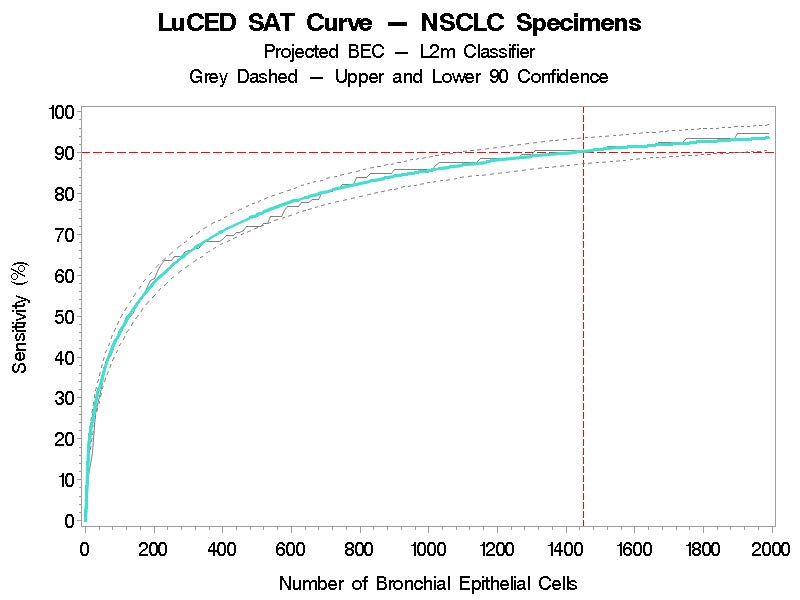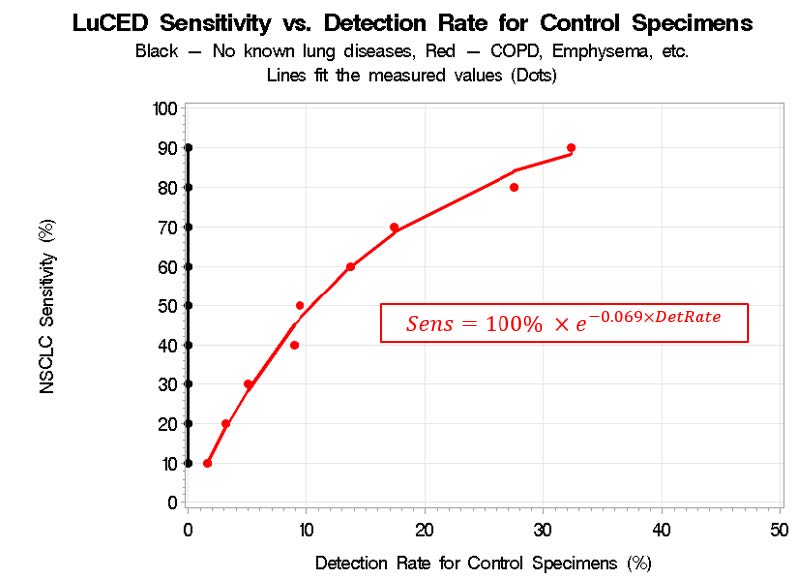VisionGate’s Abstract Accepted for the 2021 World Conference on Lung Cancer: COPD and LuCED Performance
The Non-Intrusive LuCED® Test for Detection of Early-Stage Lung Cancer: A Subgroup Analysis for Chronic Obstructive Pulmonary Disease (COPD)
(Abstract #635)
Meyer, Nelson
Introduction
VisionGate’s LuCED® test for lung cancer measures 934 features in each cell imaged in 3D by the Cell- CT™. Sensitivity and specificity, both exceeding 90%, have been reported (Wilbur, et. al., Cancer Cytopathology, 123:9,548-556). The relationship between sensitivity and an enumeration of bronchial epithelial cells (BECs) is shown in the SAT curve – for example, 1450 BECs yields a sensitivity of 90%. A normal result is assigned for cases with sufficient BECs and no detected abnormal cells.
Methods
LuCED AI was trained to identify cells with a cytologic diagnosis of atypia+. Accordingly, specificity for LuCED is measured for patients who are free of lung disease. Here, we investigate the rate of LuCED Submitted Abstract now in Review abnormal case reports for patients who are free of lung cancer but with or without non-cancer disease such as COPD. Two case-level ROC curves were produced by setting the required BEC count for a desired sensitivity and then recording the rate of LuCED abnormal reports for two control populations: 1. Free of lung disease, 2. With COPD or other non-cancer disease.
Results
The study used 62 cases with lung disease and 37 cases without lung disease. The resulting case level ROC curves are shown below:


Conclusions
ROC analysis shows, for a given sensitivity, that the rate of abnormal case reports for control specimens with COPD is elevated relative to cases without COPD. This is expected as COPD is associated with pre-cancer indicating that LuCED is sensitive to these conditions. A further implication is that LuCED specificity, measured on controls without lung disease, is nearly perfect. These results underscore prior claims of high sensitivity and specificity in detection of lung cancer with the added benefit of pre-cancer detection. A future area of focus would evaluate the LuCED test for primary triage of high-risk individuals to LDCT for detection of early-stage lung cancer.



